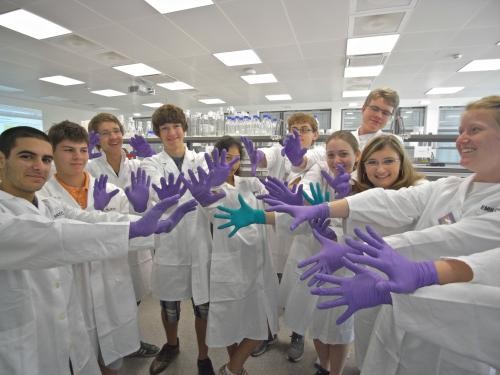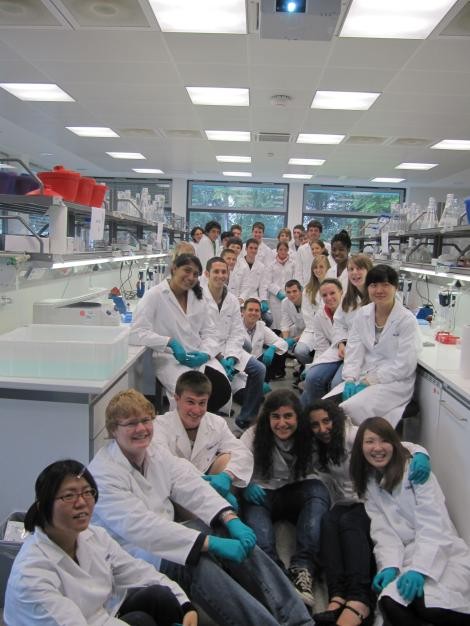Concept
In 1996 the City of Heidelberg organized the first 'International Summer Science School Heidelberg' (ISH) in close cooperation with a number of renowned scientific institutions.
The idea of the International Summer Science School Heidelberg goes back to the International Summer Science Institute of the Weizmann Institute in Rehovot and is meant to promote up-and-coming scientists and international exchange.
Within the framework of the ISH, every summer up to 21 pupils particularly talented in natural sciences who have passed their last year of high school and come from one of Heidelberg's sister cities (Montpellier/France, Cambridge/Great Britain, Rehovot/Israel, Simferopol/Crimea, Bautzen/Germany, Kumamoto/Japan, Palo Alto/USA and Hangzhou/China) are offered the possibility of gaining first insights into the world of research during 4 weeks of practical training under the supervision of scientists and, at the same time, get to know the city of Heidelberg and the host country of Germany.
Science in Heidelberg
Heidelberg is known worldwide as a symbol of Romanticism and for its architectural charm. Every year, millions of visitors come from all over the world to our city, attracted by this reputation. Our important historic and cultural heritage combined with the unique landscape of the Neckar valley create this charm which has been equally appreciated by guests and residents not only in our time but over many centuries.
However, Heidelberg certainly does not live purely of its past. Anyone who looks behind the historical facades will discover a progressive city of international importance in the fields of science, research and business. A staff of over 10,000 makes the Ruprecht Karl University the city's most important employer.
Significant research institutions of world fame are based in our city. Besides the EMBL there are the DKFZ, the University's research institutes, EURESCOM and four Max Planck Institutes.

